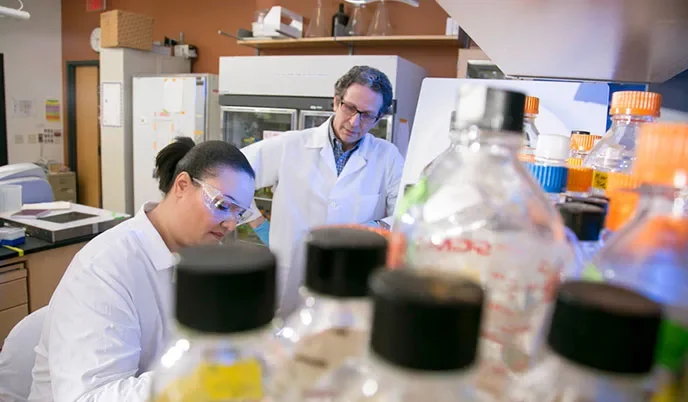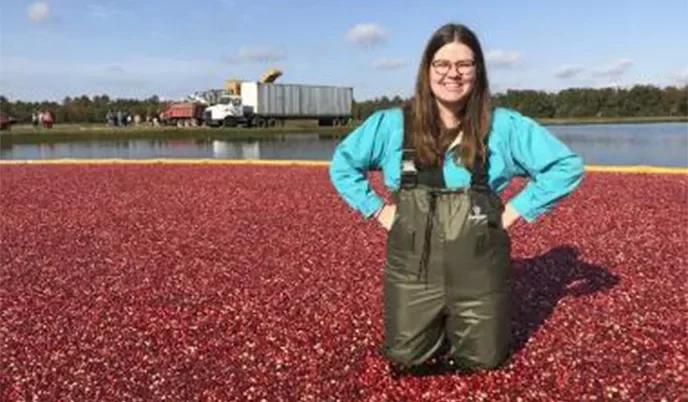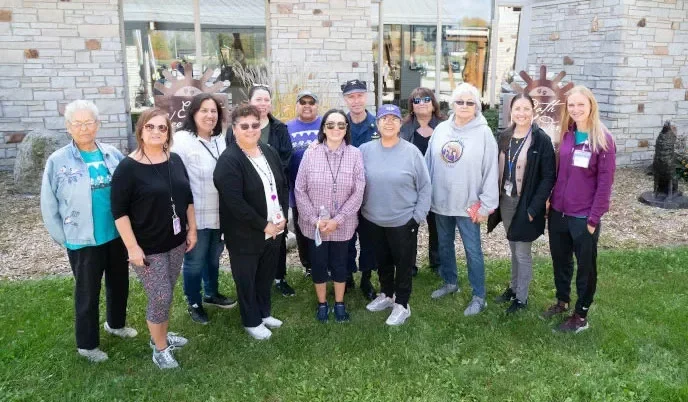
Caring for Wisconsin's Amish Infants
As a population, the Amish and Old Order Mennonite, collectively called Plain communities, have an increased frequency of inherited genetic diseases, many of which are screened for in newborns. But not all Plain newborns undergo screenings, so Christine Seroogy, MD, and her team of collaborators are using Wisconsin Partnership Program funding to improve access to approachable, culturally appropriate, high-quality affordable health care for all Wisconsin Plain community children.

Combating Infectious Disease
A project funded by the Wisconsin Partnership Program brought together campus basic scientists and clinical infectious disease and population health faculty to focus on translating new discoveries into clinical advances aimed at reducing the threat of infectious disease. The project created the Wisconsin Center for Infectious Disease (WisCID) to investigate microbiological areas of public health importance and translate the research findings into new treatments and preventive measures in response to the alarming rise of drug-resistant infections.

Advancing Burn Treatment
Twenty years ago, a Madison bus fire inspired Dr. Angela Gibson, then a UW Health burn nurse, to become a surgeon and scientist. Now she’s using a New Investigator Grant from the Wisconsin Partnership Program to improve the wound healing process for burn victims.

Enhancing Flu Detection
A multidisciplinary team of researchers led by Jonathan Temte, MD, PhD, professor of family medicine and community health at the UW School of Medicine and Public Health, aims to develop an innovative infection control approach for highly vulnerable populations living in long-term care facilities.

Developing Public Health Leaders to Serve Wisconsin
The Wisconsin Population Health Services Fellowship Program at the UW School of Medicine and Public Health is helping to build a public health workforce prepared to meet the health needs of the state.

Preventing Stroke in the Oneida Nation
The Oneida Stroke Prevention Program is a tribal-academic partnership that addresses the urgent need to target stroke risk factors in Native populations.

Bolstering the Health Care Workforce by Helping Students
Thanks to this incentive program, more than 1,600 nursing and health sciences students stepped up to meet the health care needs of their communities and receive tuition support.

Addressing Dual Epidemics of Drug Overdose and COVID-19
A research project, Responding to Dual Epidemics across Wisconsin during COVID-19, is taking an innovative approach to providing support and treatment to people vulnerable to the dual epidemics of overdose risk and COVID-19.

Shedding Light on COVID-19’s Impact on Wisconsin’s Disability Community
Researchers and community collaborators are shedding light on how COVID-19 has changed the daily life of Wisconsinites living with intellectual and developmental disabilities. Their findings will guide service delivery for future health crises to ensure that Wisconsin communities and workplaces are safe, inclusive, and accessible.

Using Telehealth and Community Partnerships To Improve Postpartum Care for Black Mothers in Wisconsin
With funding from the Wisconsin Partnership Program, the initiative expands upon a successful telehealth patient monitoring program.